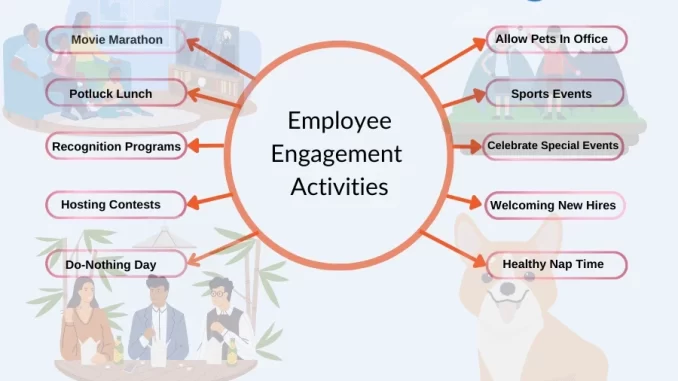
Employee engagement is a critical factor for the success and growth of any organization. Engaged employees are highly motivated, dedicated, and enthusiastic about their work, resulting in increased productivity and improved performance. Implementing effective employee engagement initiatives is essential to create a positive work environment and foster a culture of high employee satisfaction.
The Importance of Employee Engagement
Employee engagement goes beyond job satisfaction. It is about employees' emotional commitment to their work and their willingness to invest their time and efforts to contribute to organizational success. Engaged employees are more likely to go the extra mile, deliver exceptional customer service, and stay loyal to the organization, reducing turnover rates. Furthermore, engaged employees are also more innovative and creative, leading to improved problem-solving and a more dynamic workplace. By fostering a culture of engagement, organizations can unlock the full potential of their workforce, resulting in enhanced business growth and profitability.
Key Employee Engagement Initiatives
1. Strong Leadership: A crucial factor in driving employee engagement is strong leadership. Effective leaders inspire and empower their teams, providing clear direction and support. Transparent communication and regular feedback help employees understand their roles, feel valued, and stay motivated. Create leadership development programs that equip managers with the skills to effectively engage and motivate their teams. Encourage open communication channels, where employees feel comfortable sharing their opinions and ideas. 2. Employee Recognition Programs: Recognizing and appreciating employee contributions is vital for engagement. Implement employee recognition programs, such as monthly or quarterly awards, to reward outstanding performance and showcase accomplishments. Consider personalized incentives, including financial rewards, gift cards, extra time off, or public recognition, to create a culture of appreciation and motivate employees to excel. 3. Training and Development: Investing in the professional growth and development of employees is a key driver of engagement. Provide training programs and resources to enhance employee skills and knowledge. This not only demonstrates the organization's commitment to employee success but also enables them to take on new challenges and responsibilities. Encourage employees to pursue professional certifications or attend conferences and workshops to expand their networks and stay up to date with industry trends. 4. Work-Life Balance Initiatives: A healthy work-life balance is crucial to prevent burnout and maintain employee satisfaction. Encourage flexible working hours, remote work options, and support for work-from-home arrangements, when feasible. Promote employee wellness by offering gym memberships, yoga classes, or wellness programs that focus on physical and mental well-being. Create a supportive and inclusive work environment that values personal time and promotes a healthy work-life integration.
Measuring Employee Engagement
Monitoring and evaluating the effectiveness of engagement initiatives is essential to ensure continuous improvement. Implement regular employee surveys to gather feedback on engagement levels and identify areas for improvement. Conduct stay interviews or exit interviews to gain insights into employee satisfaction and reasons for turnover. Utilize key performance indicators (KPIs) such as absenteeism rates, productivity levels, and employee retention rates to track the impact of engagement initiatives on business performance.
Conclusion
Implementing effective employee engagement initiatives is crucial for organizations to create a positive and productive work environment. By fostering engagement through strong leadership, recognition programs, training and development opportunities, and promoting work-life balance, organizations can cultivate a highly motivated and committed workforce. Regularly measuring and evaluating employee engagement levels ensures continuous improvement and helps unlock the full potential of employees for long-term success.
